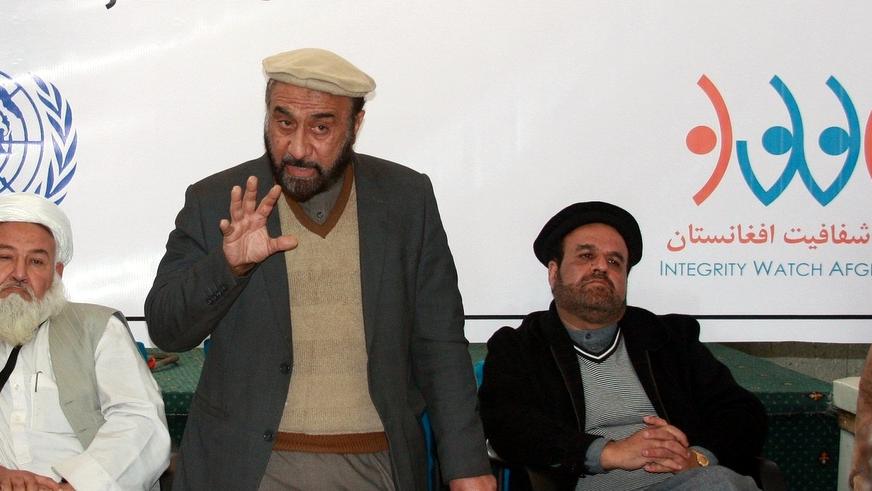JALALABAD - The need to tackle corruption in the interest of supporting development initiatives was the focus of a UN-backed Nangarhar panel discussion involving a diverse group of participants from the eastern province.
Speaking before an audience of about 40 people, an eight-member panel highlighted various types of corruption, its impact on peace and development, and the role women, civil society members and others can play to reduce it.
The panel consisted of Nangarhar's Governor, the Provincial Attorney, a member of the Provincial Council, regional heads of the High Office of Oversight and Anti-Corruption (HOOAC) and Integrity Watch Afghanistan (IWA), a lecturer at Nangarhar University Law Faculty, a religious scholar and a women’s rights representative.
Organized jointly by UNAMA, HOOAC and IWA, the event drew tribal elders, religious scholars, civil society members, women’s rights activists and government officials, all of whom listened to the lively discussion, asked questions and offered comments.
Abdul Karim Adib, a law lecturer, said that in order to tackle corruption it is necessary to support the rule of law. “Unless we stand up against nepotism and relation-based recruitment, we will not be able to address the issue of corruption in the government machinery,” said Mr. Adib.
Abdul Ahad Haidary, a representative of the Attorney’s Office said that the law itself is not the issue, but rather a firm commitment to its implementation: “There is no doubt that lawyers and judges can play a vital role in the fight against corruption, which requires honesty and commitment.”
Anil Adhikary, acting head of UNAMA’s eastern regional office, said the UN is committed to helping the people and government of Afghanistan fight corruption and pave the way to sustainable peace and development.
UNAMA is mandated to support the Afghan Government and relevant international and local non-governmental organizations to assist in the full implementation of the fundamental freedoms and human rights provisions of the Afghan Constitution and international treaties to which Afghanistan is a State party, in particular those regarding the full enjoyment by women of their human rights.






